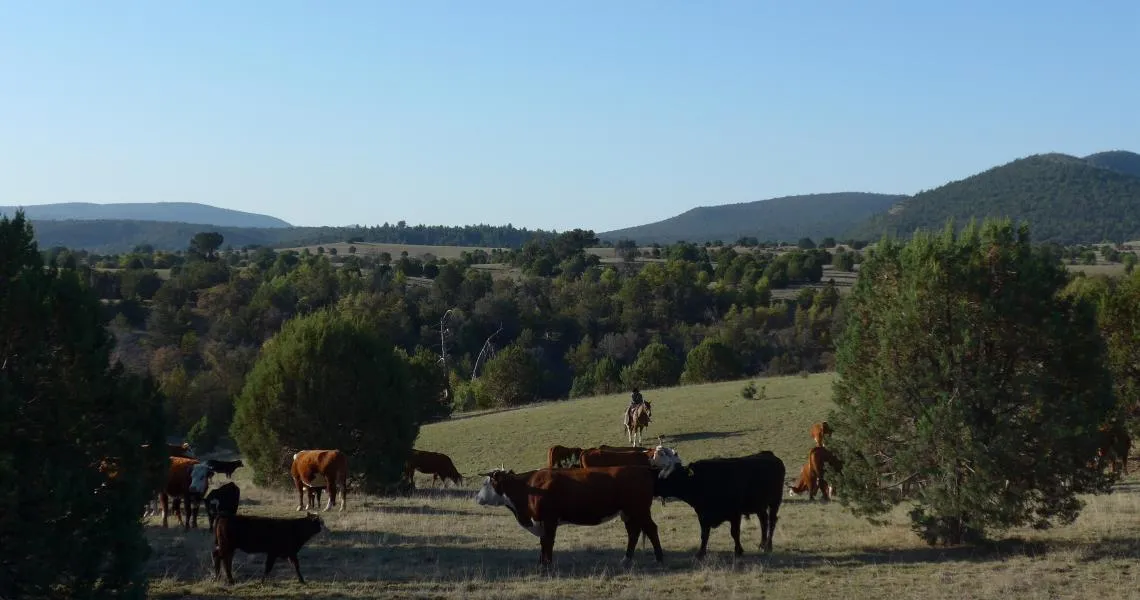
Leased rangeland in the Tonto National Forest
Lead CCASS Contact: Mitch McClaran
Drought threatens livestock and natural resources on rangelands, including the 90 million acres of federal land that are administered by the Forest Service and grazed by livestock belonging to ranchers with grazing permits. A team from the University of Arizona worked with ranchers and Forest Service personnel on the Tonto National Forest (TNF) to co-develop ways to increase the preparation for future droughts that are 1) feasible for ranchers and 2) consistent with the federal policies that define management options for the National Forest. The goal of the project is expanded engagement in Forest Service decision processes for long term drought planning.
A series of workshops held in 2015 and 2016 included District Rangers and Range staff and ranchers with grazing permits on the TNF, and drought information developers from University of Arizona Cooperative Extension and the National Drought Mitigation Center. Initially, participants received basic information on drought science and decision support tools, Forest Service livestock management policy, and an introduction to scenarios and contingency planning. Information from discussions during the workshop was used to co-develop drought information and planning tools that better fit rancher and Forest Service needs. A second workshop used a Drought Scenarios Planning Tool to simulate actual decision making situations during drought in order to provide an experiential learning space in which parties who initially mistrusted each other could share knowledge, learn together, and practice how they could work together during a real drought. In the third workshop, participants co-developed a decision table for implementing drought preparedness practices identified in the previous workshop and used it to create realistic plans for implementing those practices.
Funding from: The National Oceanic and Atmospheric Administration’s (NOAA) Sectoral Applications Research Program (SARP) Coping with Drought program

